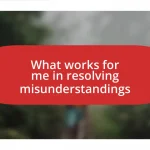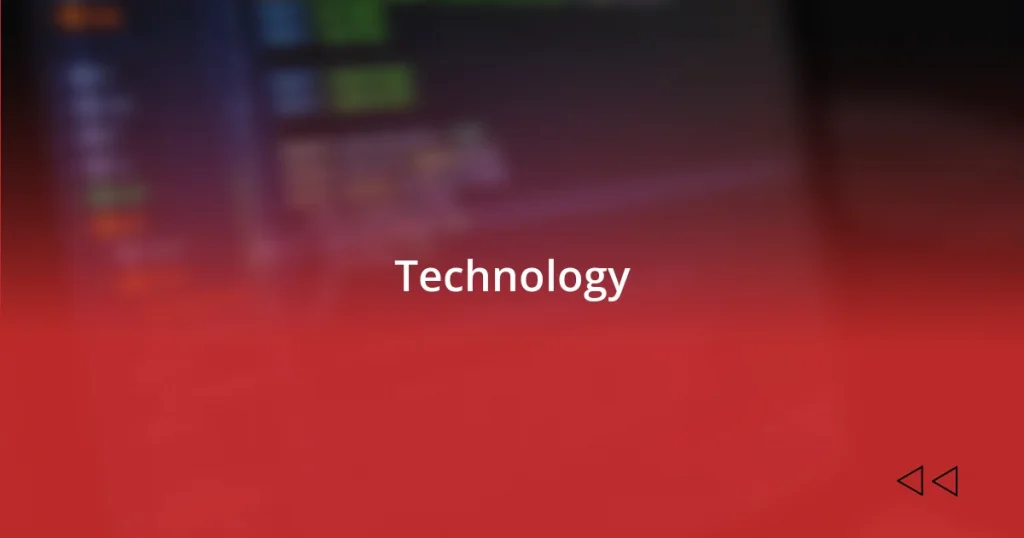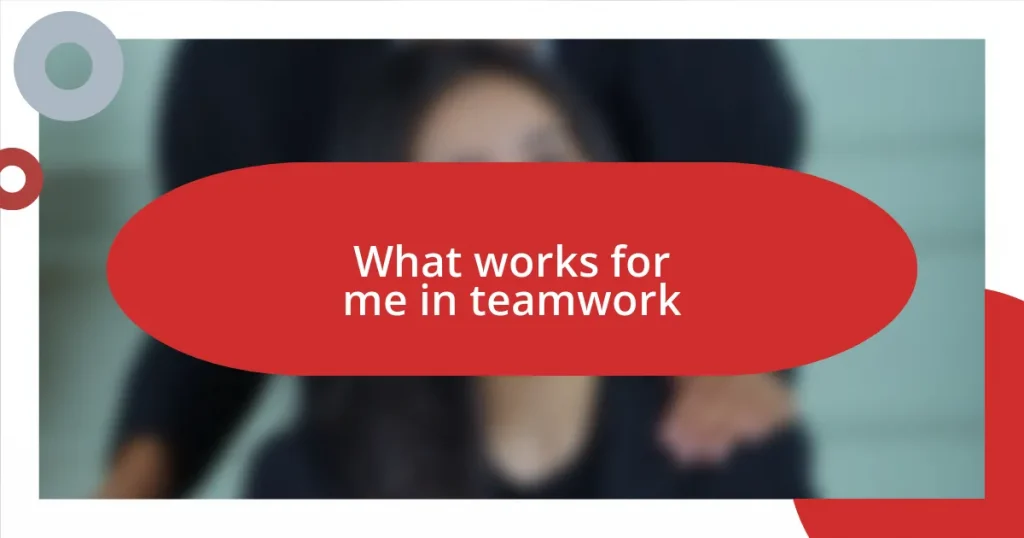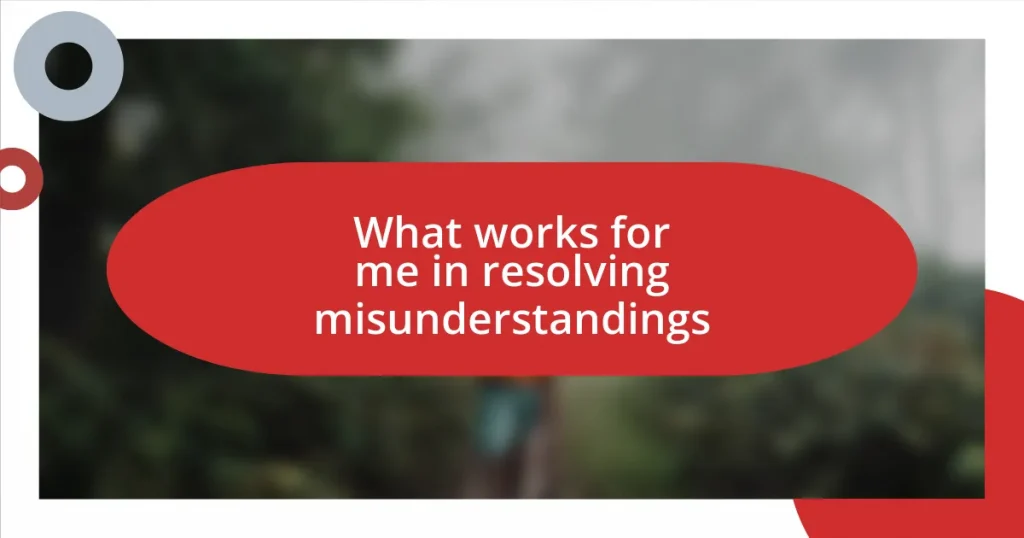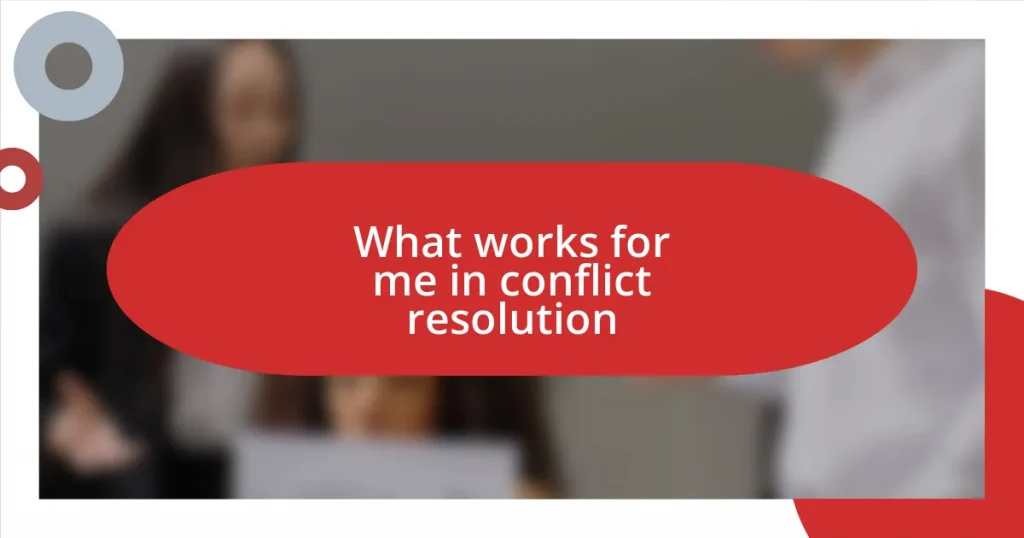Key takeaways:
- Cultural identity shapes our self-perception and fosters empathy, emphasizing the importance of understanding our roots and engaging with diverse experiences.
- Globalization influences cultural evolution, creating hybrids of traditions while highlighting the need to honor our heritage amidst change.
- Celebrating diversity through community engagement, storytelling, and cultural exchanges strengthens cultural ties and enriches our identities.
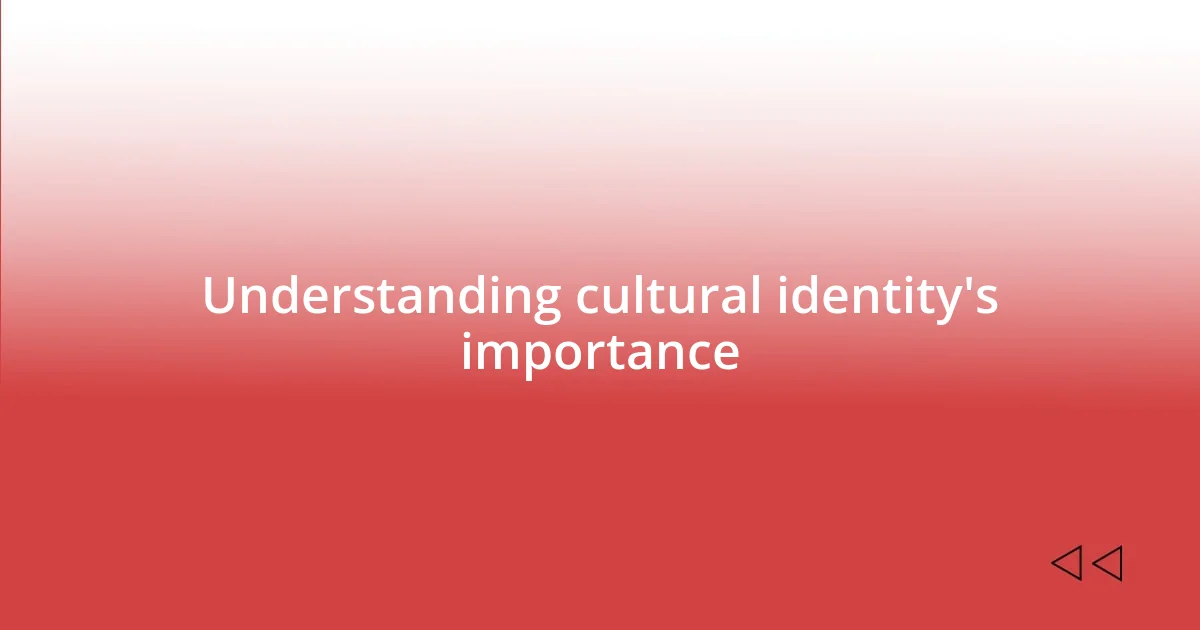
Understanding cultural identity’s importance
Cultural identity is crucial because it shapes how we see ourselves and our connection to the world. I remember a time in my life when I explored my ancestral roots. I was amazed at how much my family’s history explained my own values and beliefs. It made me realize that understanding where we come from gives our lives a deeper meaning.
Reflecting on cultural identity also fosters empathy and understanding among diverse communities. When I attended a cultural festival, I spoke with individuals from different backgrounds. Their experiences opened my eyes to struggles and joys I had never considered. How often do we let ourselves dive into someone else’s world? It’s through these honest exchanges that we build bridges and create a more inclusive society.
In my opinion, acknowledging cultural identity is about empowerment. Embracing our uniqueness not only validates our experiences but also encourages others to do the same. I often think about the stories I heard during storytelling nights in my community. Each tale resonated with emotions and lessons that connected us all, regardless of our backgrounds. Isn’t it powerful how sharing our narratives can spark a collective strength?
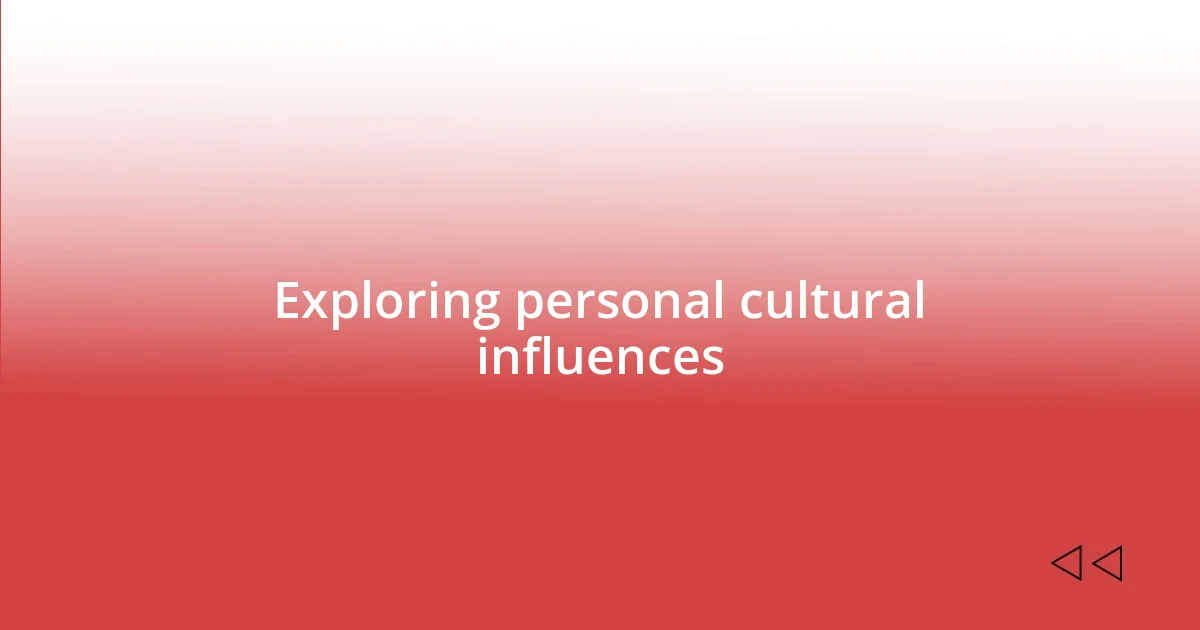
Exploring personal cultural influences
It’s fascinating how personal experiences shape our cultural influences, often in unexpected ways. I recall my grandmother’s kitchen, filled with the aroma of spices that told stories of her homeland. Each dish she prepared wasn’t just a meal; it was a piece of history served on a plate. These culinary traditions infused a sense of belonging in me, igniting a passion for cooking that connects me to my heritage and allows me to share it with others.
- Family traditions: The rituals and celebrations passed down through generations.
- Language: The dialects and phrases that evoke feelings of home and identity.
- Music and art: The songs and visuals that embody cultural narratives and emotions.
- Food: The flavors that transport us to different times and places, creating bonds over shared meals.
- Community: The friendships and connections formed through cultural gatherings and events, enriching our understanding of diversity.
Each of these influences contributes to my sense of self, making me appreciate the tapestry of cultures that form my identity. It’s a constant reminder of how intertwined our personal stories are with the world around us.
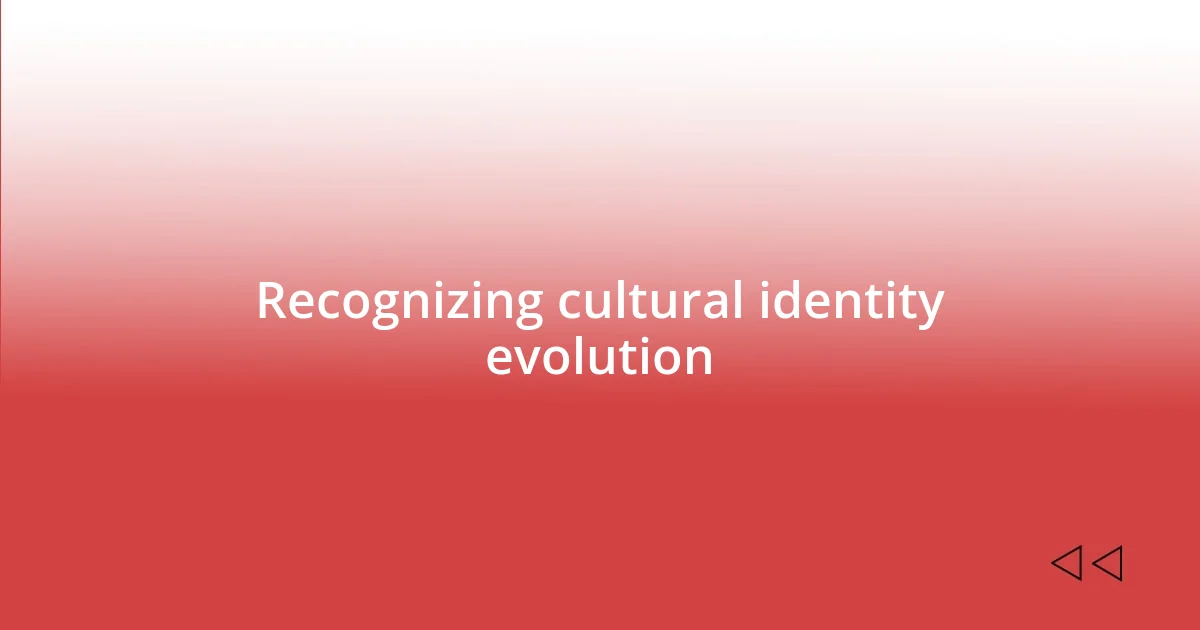
Recognizing cultural identity evolution
Recognizing the evolution of cultural identity is an intriguing journey. I often find myself reflecting on how my views have shifted as I’ve traveled and interacted with different cultures. For instance, when I visited a small village in another country, I encountered traditions that were so distinct yet familiar. This experience made me realize that cultural identity isn’t static; it morphs as we gather new experiences and learn from others.
Moreover, my perspective on cultural evolution deepened when I began to explore the impact of globalization. I’ve seen how some local customs blend seamlessly with global trends, creating a unique cultural hybrid. At a potluck dinner, where everyone brought a dish from their own background, I was struck by how food continued to adapt, telling stories of fusion while remaining rooted in tradition. How does cultural exchange shape your identity? It’s an ongoing dialogue that redefines who we are, inviting us to embrace change while respecting our roots.
In this realm of discovery, I believe it’s essential to honor the past while being open to future influences. I remember attending an art exhibit that showcased artists from various backgrounds, each one reflecting their cultural heritage differently. It struck me that while their mediums varied, the core essence of their identities flowed through their creations. This lesson reminds me that evolution in cultural identity is not a loss but an expansion, weaving in new threads to create a richer tapestry of life.
| Aspect | Traditional View | Evolving View |
|---|---|---|
| Definition | Static heritage passed down through generations | Fluid and adaptable, influenced by external factors |
| Expression | Preserved rituals and customs | Innovative fusion of traditions and modernity |
| Community | Local and isolated | Interconnected and global |
| Influences | Family and heritage | Technology, travel, and cultural exchange |
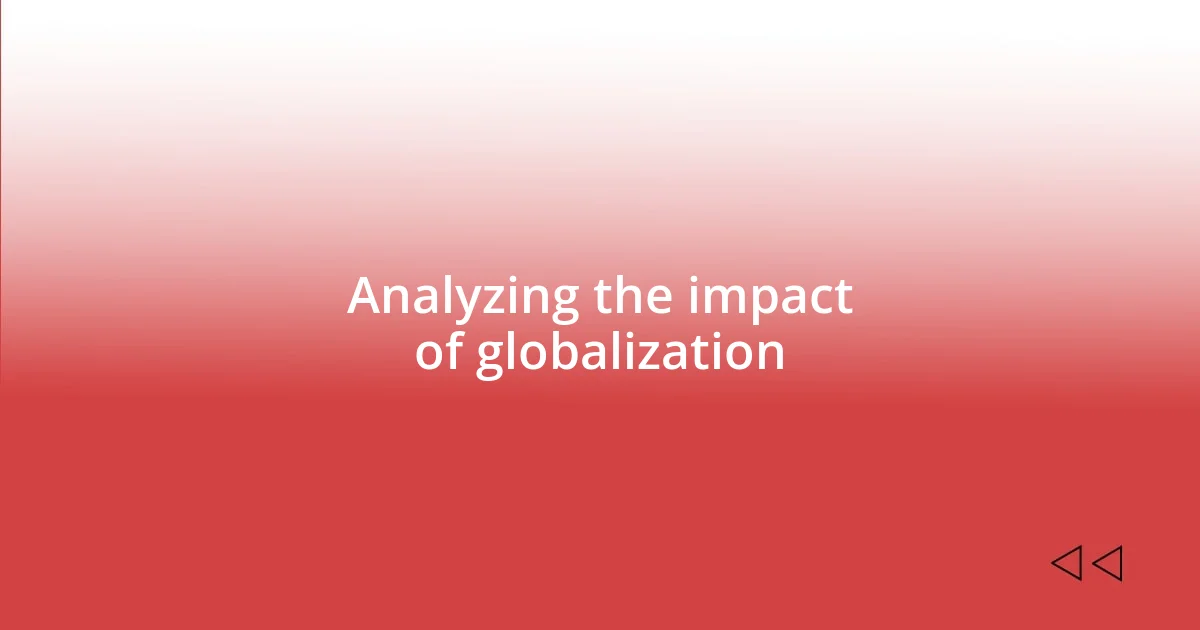
Analyzing the impact of globalization
Globalization has a remarkable way of reshaping our perceptions of cultural identity. I vividly remember attending a music festival where artists from all corners of the globe came together, blending traditional sounds with contemporary genres. It was electrifying to witness how each performance not only showcased individual heritage but also highlighted the influences of others, creating something entirely new. Could this creativity be a reflection of our world today, where cultural boundaries seem to blur?
On a personal level, I’ve often found myself pondering how my favorite dishes have transformed over the years. For instance, the comfort food I grew up with has evolved, as I’ve started incorporating global spices and methods into my own cooking. I cherish those moments when I experiment in the kitchen, fusing my grandmother’s recipes with flavors from around the globe; it’s a delicious reminder that culture is dynamic. Isn’t it intriguing how globalization invites us to weave our stories together through food?
In navigating this intercultural exchange, I’ve noticed that while we may adopt elements from diverse cultures, it’s vital to remain grounded in our roots. I once engaged in a heartfelt discussion with a friend about our different backgrounds, and we both agreed that despite the blending, honoring our unique narratives is key. This balance between embracing new influences while celebrating where we come from forms a richer understanding of identity. How do you balance your heritage within the tapestry of globalization?
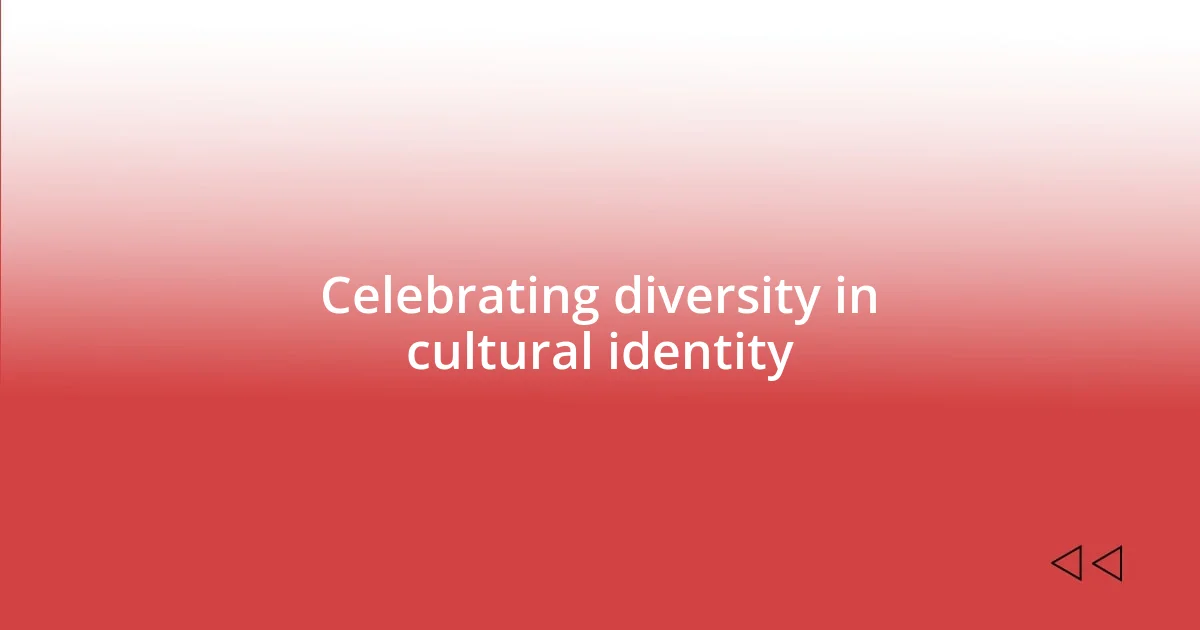
Celebrating diversity in cultural identity
Embracing diversity in cultural identity is like savoring a multi-course meal; each dish offers its unique flavor while contributing to a more vibrant feast. I still remember attending a community festival where people donned their traditional attire, celebrating their heritages with pride. The kaleidoscope of colors and sounds was mesmerizing. It struck me how every smile and every dance told a story of resilience and unity. Isn’t it incredible how such events not only connect us to our roots but also foster a sense of belonging among diverse groups?
As I navigated through these cultural celebrations, I started to feel emotions that transcended language and borders. I vividly recall sharing laughter and stories with a family from a completely different background, bonding over our mutual love for music. In that moment, I realized celebrating diversity allows us to find common threads in our unique tapestries. How often do we seize the chance to step into someone else’s world? When we do, we find that our identities are enriched and expanded, creating a mosaic that honors both individuality and togetherness.
Diversity is not just something to observe; it’s something to actively participate in and celebrate. When I volunteered at a multicultural event, I experienced the exhilaration of learning a traditional dance from a new friend. It was clumsy at first, but the shared laughter and encouragement felt deeply unifying. Those moments taught me that, while we may come from distinct backgrounds, celebration lies in our willingness to learn from one another. Have you ever stepped outside your comfort zone to embrace another culture? It’s these small acts of openness that weave the fabric of our global community.
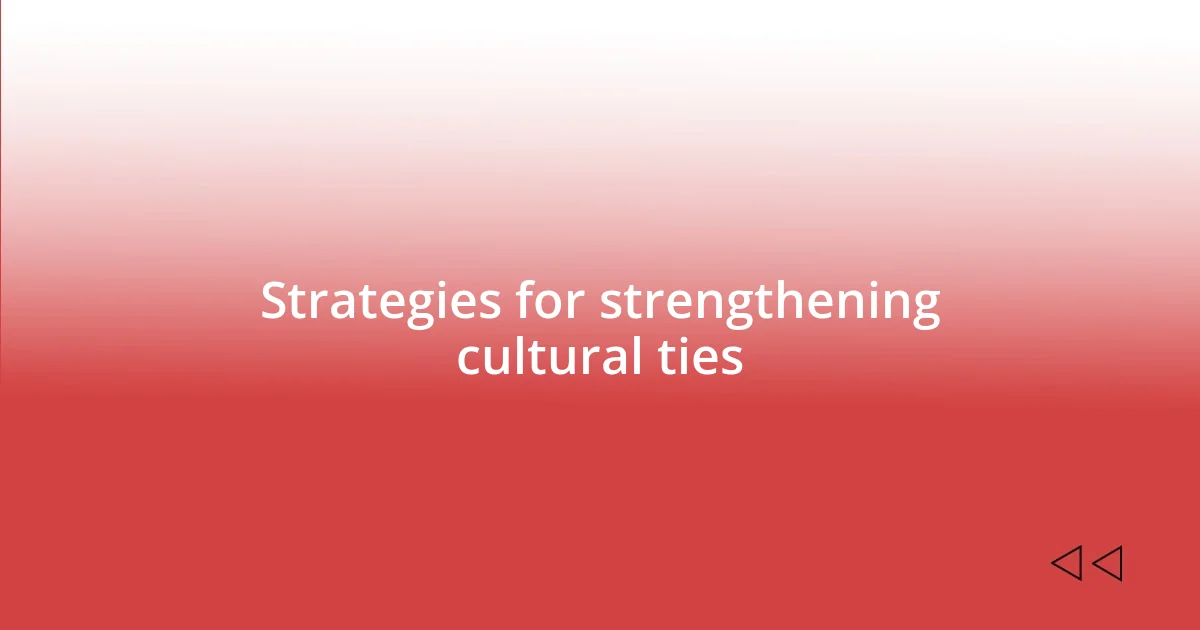
Strategies for strengthening cultural ties
Cultivating strong cultural ties requires intentional actions that invite connection and understanding. I recall a time when my family and I created a monthly cultural night where we explored different traditions, foods, and histories. Each gathering was not just a culinary experience; it allowed us to share stories about who we are, reinforcing our bonds while expanding our appreciation for others. Have you ever thought about how such simple routines can deepen your cultural roots?
Engaging in storytelling has also proven to be a powerful tool in strengthening cultural ties. I once participated in a community storytelling event where individuals shared personal narratives about their heritage. Listening to others speak about their struggles and triumphs was both moving and eye-opening. It made me realize that through storytelling, we find empathy and shared experiences, bridging gaps between different cultures. How often do we take the time to share and listen to the stories that shape us?
Moreover, volunteering in multicultural settings has provided me with transformative experiences that truly enhance one’s cultural connections. When I helped organize a language exchange program, I was struck by how eager participants were to learn about not just languages, but also the cultures behind them. That experience reminded me of the excitement that comes with learning something new, coupled with the friendships formed through shared curiosity. Have you considered how the act of giving back to diverse communities can enrich your own cultural identity?

